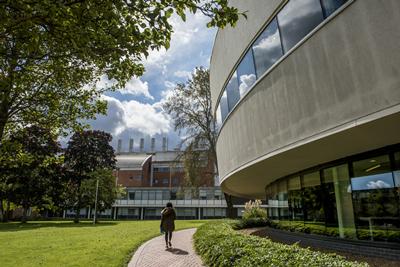Southampton tops three subject tables in the Complete University Guide

The University of Southampton has held its place in the 2020 Complete University Guide, published online.
Southampton is placed 20th for the second consecutive year out of 131 universities listed in the Guide’s annual league table of UK universities.
The Guide places Southampton at number one in three subject areas – Aural and Oral Sciences, Occupational Therapy and Physiotherapy.
In addition, the Guide places the University in the top 10 in the following 15 subject areas:
- Aeronautical and Manufacturing Engineering (6th of 38)
- Anatomy and Physiology (7th of 37)
- Anthropology (9th of 35)
- Civil Engineering (5th of 56)
- Classics & Ancient History (9th of 26)
- Communication and Media Studies (10th of 96)
- Education (10th of 81)
- Electrical and Electronic Engineering (7th of 71)
- French (9th of 49)
- Geology (7th of 29)
- Iberian Languages (9th of 48)
- Marketing (3rd out of 81)
- Mechanical Engineering (8th of 71)
- Music (4th of 82)
- Nursing (5th of 72)
The University also features in the top 20 in a further 10 subjects.
Professor Mark Spearing, President and Vice-Chancellor (Interim) praised the contributions and efforts of staff in boosting the University’s league table position: “I’m delighted that we remain in the top 20 in this year’s Complete University Guide and even more pleased for colleagues across the University, as their sterling efforts, personally and collectively, have helped to lift us into the top spot for 3 subjects and into the top 10 across a further 13 areas. This is clear evidence of the progress we’re making with our education strategy.”
The rankings for Aeronautical & Manufacturing, Civil, and Electrical and Electronic Engineering mean that Southampton has been top 10 for these subjects every year since the Guide was first published in 2008.
The University's overall place in the table is based on several criteria: entry standards, student satisfaction, research excellence and intensity, graduate prospects, student-staff ratio, university spending on services and facilities, graduates receiving a first or upper second class honours degree, and degree completion.